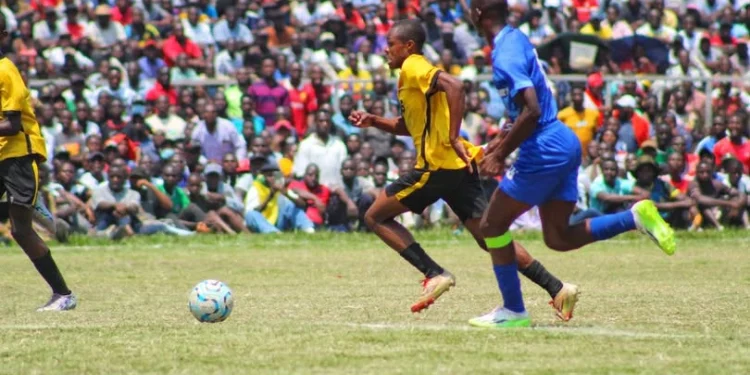What is the purpose of our life? This question cannot just be answered in a single phrase. The analogy of the lion and the deer can contextualise the lesson.
In the race between the lion and the deer, the deer often wins because the lion runs for food, but the deer runs for life. This tells us that purpose is more important than need. Understanding the purpose behind something can often provide greater clarity and motivation than simply addressing a need. Purpose gives direction and meaning, guiding actions and decisions toward a specific goal. Crysatllize your passion and the chances for success are high.
In the vast savannah, where nature writes its own rules and survival is the ultimate goal, the race between a lion and a deer is more than just a chase. It is a compelling metaphor that speaks volumes about life, purpose, and the hidden forces that drive success or failure. When a lion chases a deer, one might naturally assume the lion, being more powerful and carnivorous by nature, would always win. Yet, nature tells a different story. Often, the deer escapes. The reason? The lion runs for his food; the deer runs for his life. This distinction, although subtle at first glance, underscores one of the most profound truths about human motivation and performance.
To understand this, we must delve into the core difference between running for food and running for life. For the lion, the chase is important—it means a meal, sustenance, and perhaps the ability to feed its cubs. But it is not necessarily a matter of life and death. If the lion fails today, it may still hunt tomorrow. Hunger is painful, yes, but it is not final. For the deer, however, the stakes are absolute. A single misstep means death. There are no second chances. That kind of urgency ignites a deep, primal energy, one that taps into reserves of speed, awareness, and endurance that are otherwise dormant. The deer doesn’t just run faster; it runs smarter, more desperately, and with a clarity that only the fear of death can inspire.
Translating this lesson to human life, we often find that individuals propelled by necessity—those who are running for their lives metaphorically—tend to outperform those who are merely chasing comfort, status, or even ambition. In classrooms, boardrooms, and the battlegrounds of life, those who have no safety nets, no options, and no fallbacks often end up achieving the extraordinary. Their drive is not built solely on desire, but on survival. It’s not about winning; it’s about not losing.
READ ALSO:
Child abductions spark panic in Kabiyet, parents demand swift action
We see this in stories of great leaders, inventors, and changemakers. Many came from backgrounds of poverty, discrimination, or personal tragedy. What they lacked in resources, they made up for in desperation, in determination, in the sheer will to not be defeated. They were like the deer – cornered by life, with failure not being an inconvenience but a catastrophe. And in that desperation, they found wings. Their success was not a product of talent alone, but of fierce urgency, sharpened by the fear of remaining stuck in the chains they were born into.
On the other hand, those with privilege, comfort, and guaranteed fallbacks may start with advantages. They may be the lions—strong, skilled, and feared. But without the pressure to perform or the fear of failure’s consequences, their drive can wane. Complacency seeps in. The hunger to win becomes less intense. When failure does not mean ruin, effort becomes optional. This is not to say that privileged individuals cannot be driven; rather, it is to acknowledge that pressure and necessity forge a different, often stronger kind of motivation.
This principle applies across fields – be it sports, education, business, or even relationships. A student from a struggling family may study with a fire that a wealthy peer cannot comprehend. An entrepreneur who has invested their last coin into a startup will fight harder than one with a family fortune to fall back on. A teacher trying to rise out of hardship will prepare harder, work longer, and give more than one who views the job as merely a paycheck. In all these instances, the deer runs harder than the lion, because the stakes are infinitely higher.
Yet, it is important to note that not all deer win, and not all lions lose. Nature remains unpredictable. Sometimes strength overcomes desperation. But when the deer does win – when the seemingly weaker overcomes the stronger – it is often because of that deep-rooted, life-driven motivation that nothing else can match. That kind of energy, born not of want but of need, has a force unmatched by training or talent alone.
Life is filled with races. Some are short and intense; others are marathons that test endurance. In each, what truly matters is not always who is stronger, richer, or more skilled, but who has more to lose. Who runs with the fear of failure hanging over them like a shadow? Who sees the finish line not as a destination but as salvation? Who runs, not because they want to, but because they must?
In the race between lion and deer, the deer often wins—not because it is faster, but because its life depends on it. And that, in all arenas of life, is sometimes the most decisive edge of all.
By Kamomonti wa Kiambati
You can also follow our social media pages on Twitter: Education News KE and Facebook: Education News Newspaper for timely updates.
>>> Click here to stay up-to-date with trending regional stories
>>> Click here to read more informed opinions on the country’s education landscape






